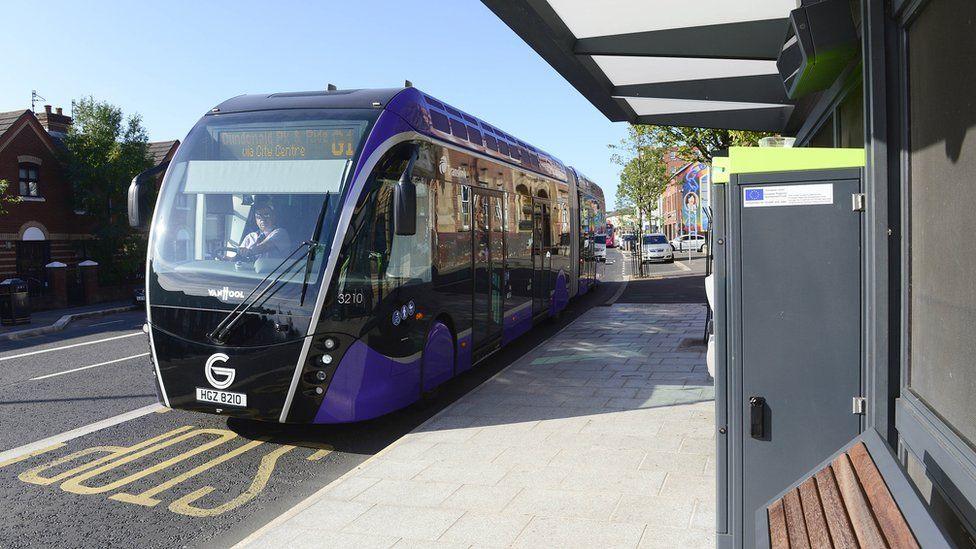Translink completes rollout of contactless payments
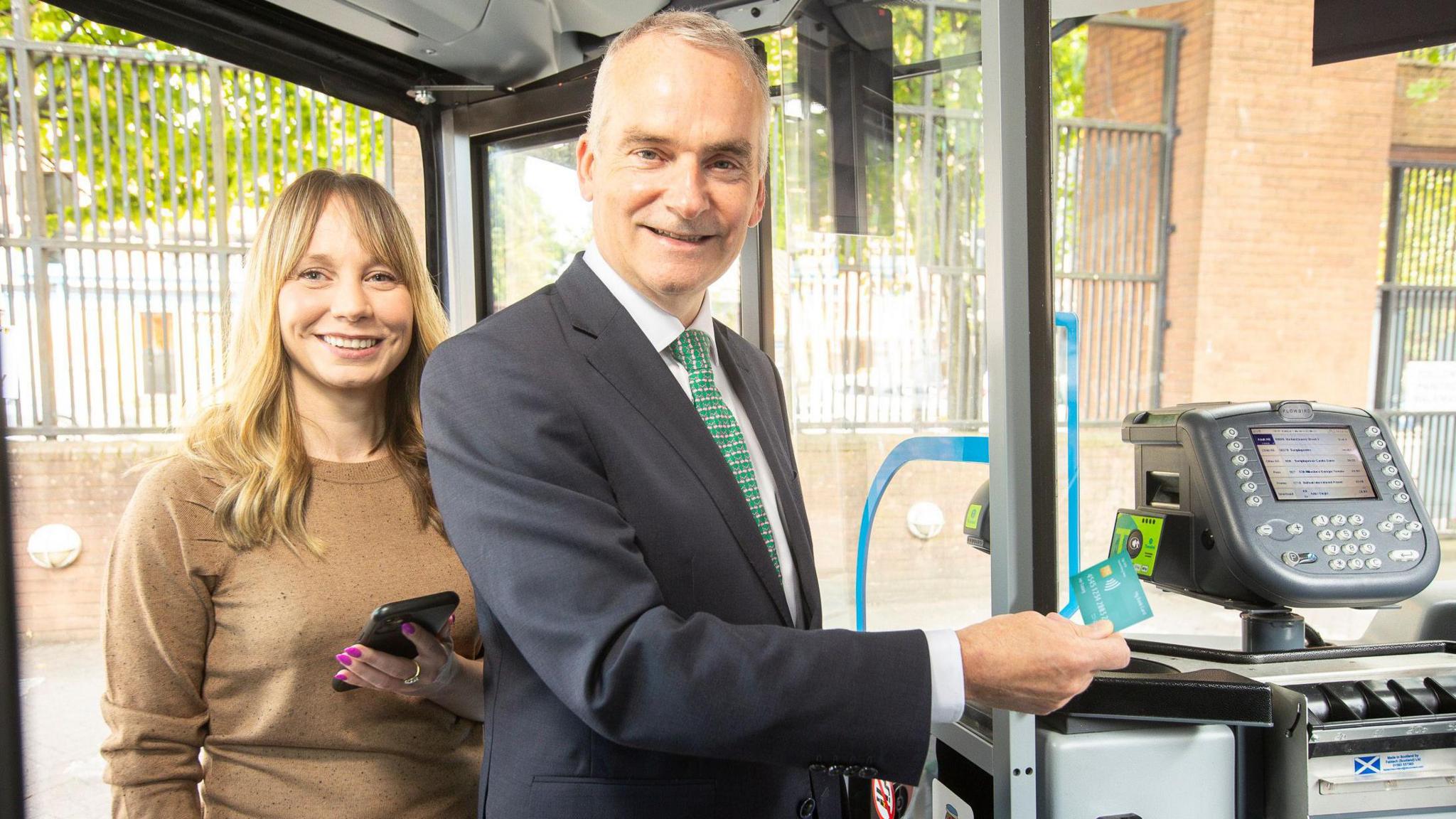
Chris Conway said that reducing cash payments would "speed up boarding times"
- Published
Translink has announced that it has completed the roll-out of contactless payments across its entire network.
The transport provider said that passengers could now use contactless on all bus and train journeys.
Some Ulsterbus and Goldliner services were the last to receive the update, which was first introduced to some Translink services in March 2022.
The head of Translink, Chris Conway, said the development was "another key step to deliver customer-led, innovative ticketing with a focus on ease of use, simplicity, convenience and integration".
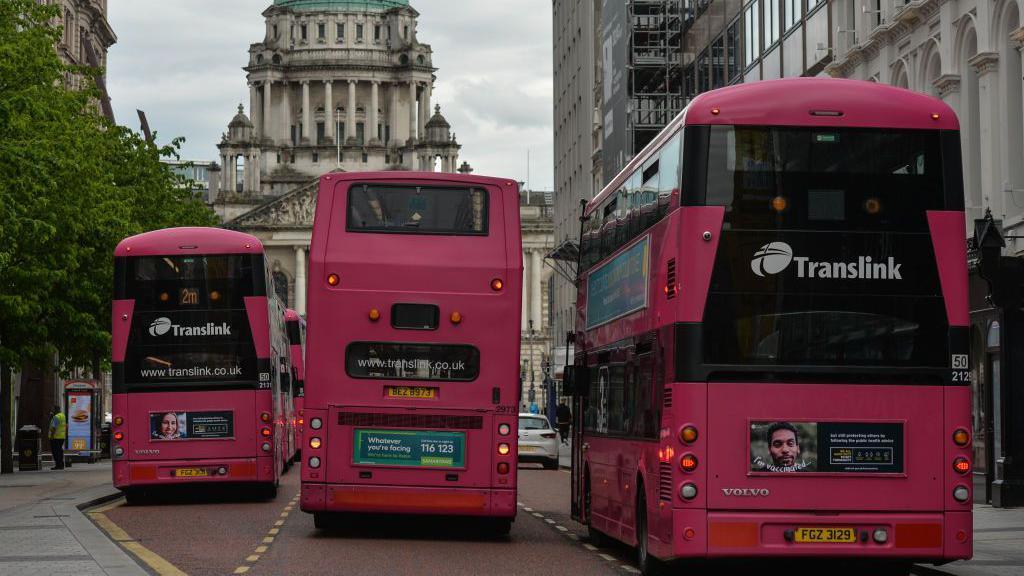
Contactless payment is now available on all Translink buses and trains
He added the changes were designed to increase the use of public transport.
“We are encouraging more passengers to take advantage of convenient contactless ticketing which will help reduce cash payments and speed up boarding times," Mr Conway said.
Translink said the on-board technology is compatible with smart device wallets such as Apple Pay and Google Pay, Visa and Mastercard (including Maestro) contactless credit and debit cards, as well as pre-paid contactless cards.
Mr Conway said the completion of the roll-out was "timely" ahead of the opening of Belfast Grand Central Station in the autumn.
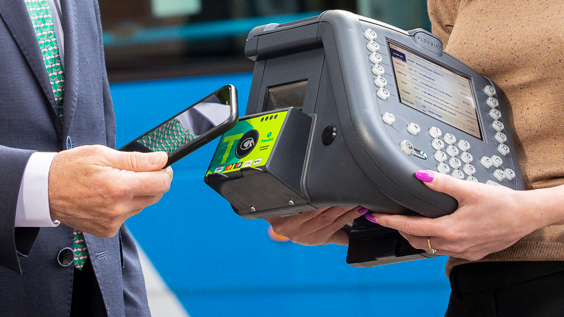
The transport provider said that passengers could now use contactless on all bus and train journeys
Construction work on the new bus and rail centre is in its final stages.
The cost of a new transport hub, situated near the current Europa Bus Centre and Great Victoria Street rail station, has risen to £340m.
It will have 26 bus stands and eight railway platforms as well as facilities for bicycles and taxis.
Translink said it will cater for up to 20 million passenger journeys a year.
- Published17 April 2024
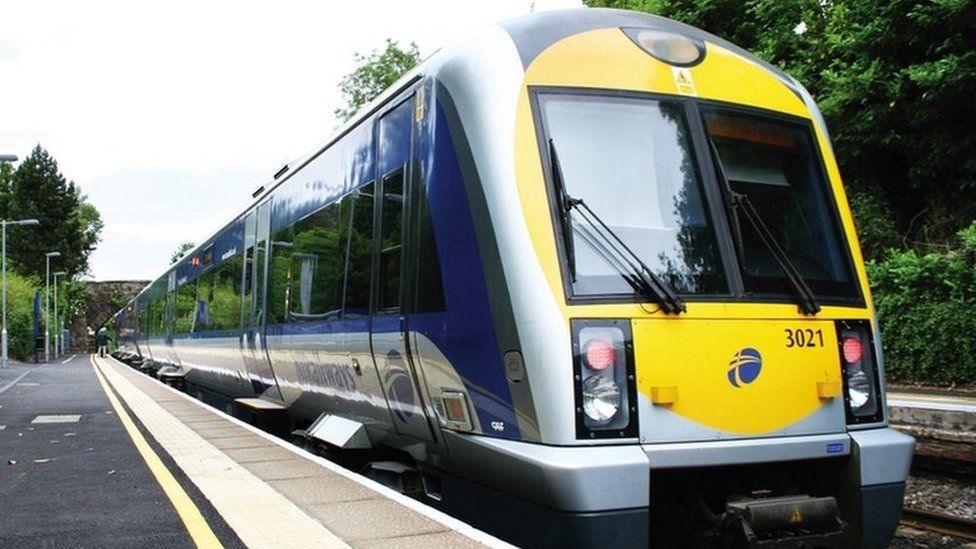
- Published24 May 2024
- Published21 November 2023
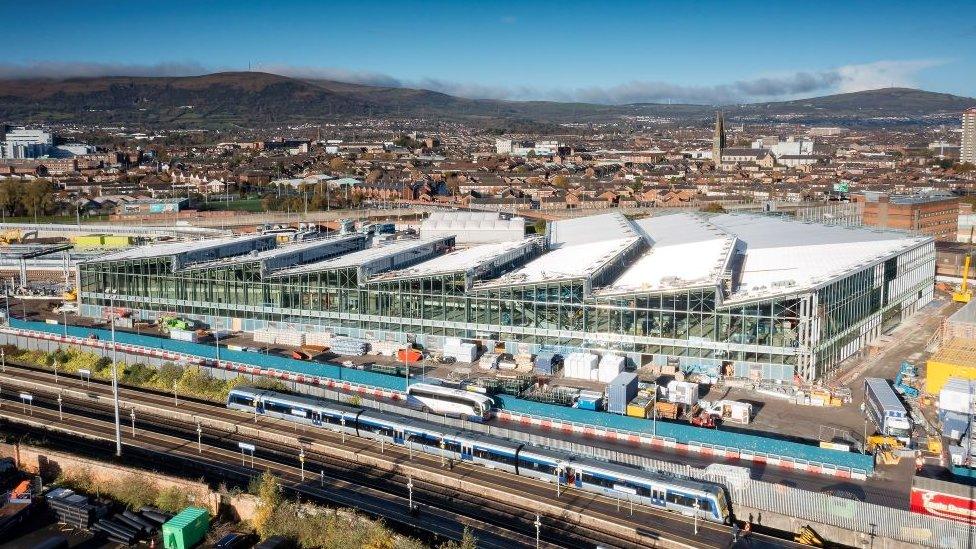
- Published27 February 2022
